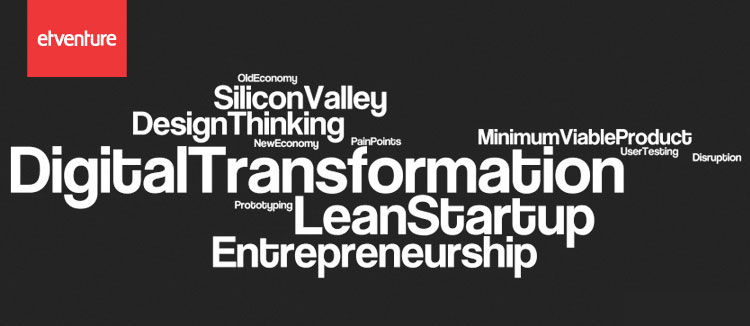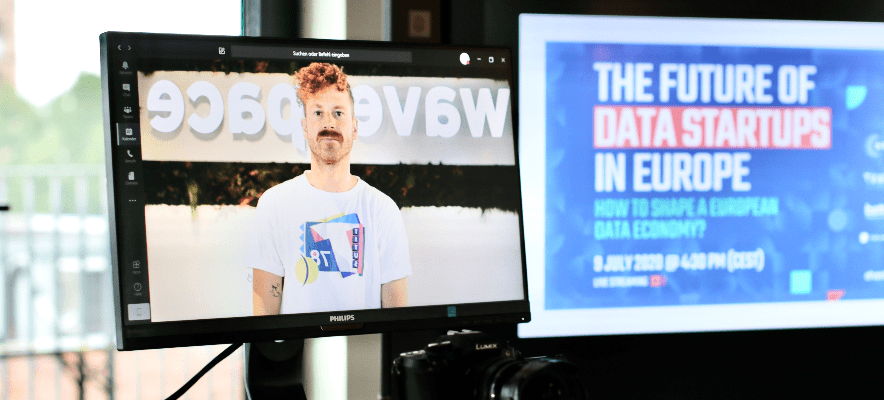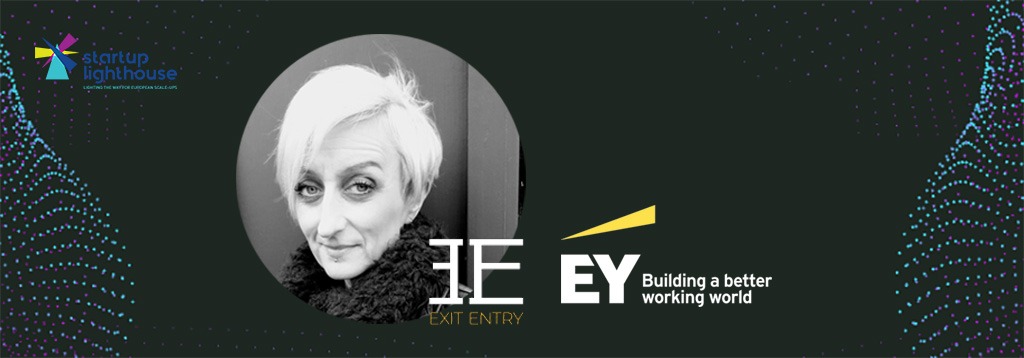Digitization and digital transformation – an overview of the most important topics from the month of February
07. March 2016
Under the heading of “Digitization and digital transformation,” we look back at the most important news and events from recent weeks. Google’s parent company, Alphabet, is now the world’s most valuable company, VW wants to become more digital, Industry 4.0 boosts productivity, and the EU commission gives Germany a good overall grade for digitization.
Global from the word go / Google’s parent company replaces Apple as the most valuable company (Spiegel / Spiegel Online)
“Last week provided more evidence, if it was needed, that it is digital companies who are dominating in terms of setting the pace for the world’s economy for the foreseeable future,” writes Spiegel author Thomas Schulz. “Google’s parent company Alphabet officially became the world’s most valuable company – a company that hardly sells any tangible goods.” This is because, in the era of digitization, information and data are becoming the most important raw material. Silicon Valley’s technology corporations have caught onto this and are “in the process of radically monetarizing this insight,” according to Schulz. “And this isn’t just in one area but in as many areas as possible.” Indeed, these digital giants are not just focusing on being successful in individual sectors or markets – they are thinking on a global scale. Alphabet’s Chairman Eric Schmidt crystallizes this idea: “If our target audience is not at least a billion people, we’re probably wasting our time.” This makes it clear that the biggest competition for traditional industrial companies is no longer coming from within their own sector. It is now coming from Silicon Valley in the form of the technology giants, especially from Google/Alphabet.
Message to Apple & Co / VW boss Müller has now been convinced by driverless vehicles (Horizont / Focus Online)
At the Geneva Motor Show, which began last week, the German automobile industry certainly made it clear that it would not surrender to competition from Silicon Valley without a fight – not least VW boss Matthias Müller, who hopes that digitization will enable the company to draw a line under the diesel scandal. The Wolfsburg-based corporation wants to venture into the “new age of mobility” once and for all – a somewhat delayed venture compared to the company’s direct competitors. This is an incredible change of heart, considering that last September at the IAA motor show, Müller had explained – while he was still the CEO of Porsche – that he saw driverless vehicles as “unjustifiable hype.” Now Müller explains: “I myself have been persuaded – driverless technology will prevail.” And it is already evident that he is serious about digitization. Indeed, one of the things in the pipeline is the development of a digital customer portal. Additionally, three “Volkswagen Group Future Centers” are planned. They will develop solutions and concepts for the digital future. And VW has recruited the new head of digital, Johann Jungwirth – a former manager at Apple – straight out of Silicon Valley. Matthias Müller clarifies: “For the Volkswagen Group, digital transformation is heading straight to the top of the agenda.”
Industry 4.0 significantly boosts productivity (Frankfurter Allgemeine Zeitung)
According to a recent survey by DZ Bank, digitization will have boosted the German economy’s productivity by twelve percent by 2025. In sectors such as the chemicals industry, engineering, and electrical equipment manufacturing, the value added could even be as much as 30 percent. Carsten Knop, Editor of the Frankfurter Allgemeine Zeitung (FAZ) writes that in the course of Industry 4.0, mass production is changing and moving towards the “automated production of customized products.” “Despite the high cost of labor compared to other countries, this kind of transformation would mean that Germany would not have to worry quite so much about competition resulting from cheaper mass production in other countries,” the analysts from DZ Bank explain. “More than just individual companies, this would allow the entire of the German industrial sector to develop new specialisms.” Nevertheless, the transition toward Industry 4.0 will not be inconsequential for the labor market. While job losses will occur, mainly in the area of routine tasks, in future it is likely to become even harder to recruit specialist staff. “The Industry 4.0 transformation should therefore be accompanied by extensive retraining measures.” The study also expresses fears that German companies are acting too cautiously regarding digitization and may be left behind as a consequence.
The strengths and weaknesses of digitization in Germany (crn.de)
Each year, the EU Commission uses the Digital Economy and Society Index (DESI) to analyze the state of digitization throughout all of Europe. The latest findings were presented by the Commission last week. The findings indicate that the development in Germany last year was particularly good. This resulted in the country ranking ninth overall, which is one place higher than the previous year. The main front runners are the Scandinavian countries, especially Denmark. Germany has particularly improved in terms of “developing electronic information sharing in enterprises” and in the area of e-commerce (e-tail). In contrast, it received poor grades in the area of connectivity. In this category, the slow rollout of broadband was particularly apparent. “Another area that is developing extremely slowly here is that of e-government, where Germany is still below the European average. Alongside Germany’s languid Internet policy, the DESI identifies another key reason for the problems in Germany: a training deficit. It ranks only sixteenth for the number of ICT specialists.” An overview of the study and of the various aspects of the DESI index can be found on the Commission’s dedicated webpages.
Together with the market research institute GfK in Nuremberg, etventure also recently published a survey about digitization in German companies. What level of importance is assigned to digitization in the German economy and how is digitization being executed within companies? You can read the findings of the survey on the blog. For more detail, you can read the e-paper that accompanies the study (in German).





* Required field